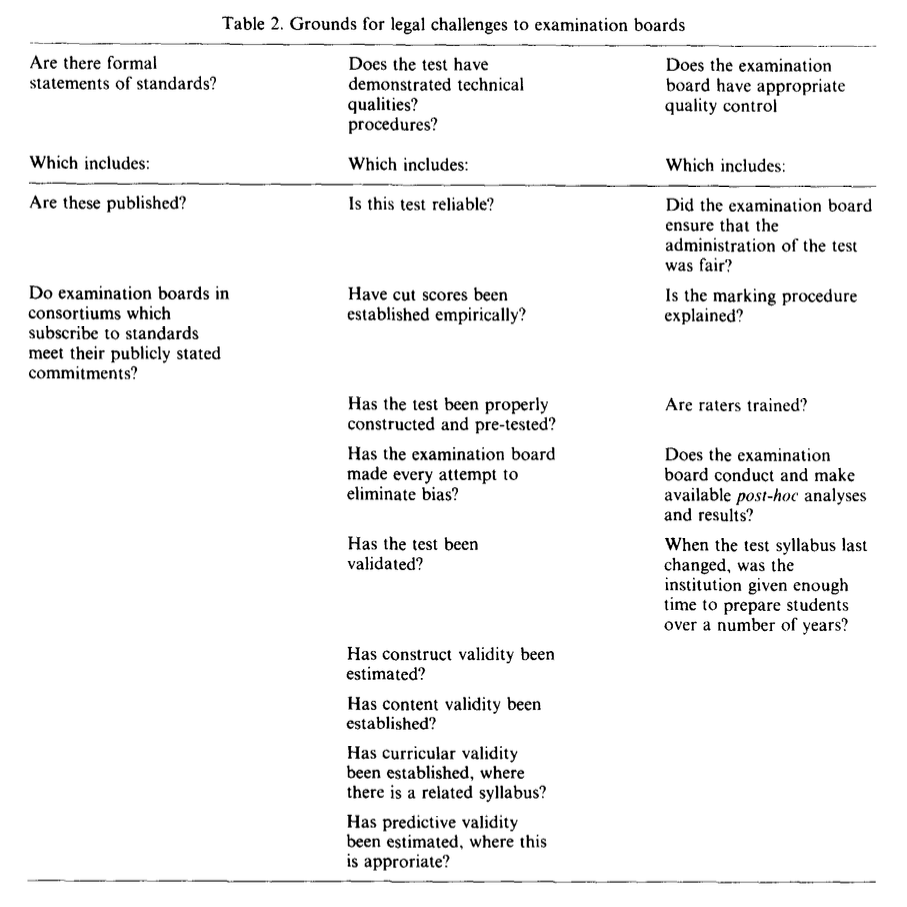Interesting 1996 paper by Fulcher and Bamford on testing, standards and the law: https://www.sciencedirect.com/science/article/abs/pii/S0346251X96000401">https://www.sciencedirect.com/science/a...
They ask, "if a candidate for a British examination were to get a grade which was lower than required, which resulted in his/her being denied access to higher education, a job position or promotion, on what grounds could he/she take the examining board to court?" (p. 437)
"we feel that some U.K. Examining Boards will only be obliged to implement [testing standards and codes of practice] ... and publish test information, when there is a real threat of court action against them." (p. 438)
In all US cases "where the plaintiffs were successful, the issue placed before the court was test bias." (p. 439)
Some issues seen to be of importance in specific legal cases: "there must be a significant delay between the publication of new tests/syllabuses to allow students to adequately prepare over a number of years" (p. 439)
"What is tested (skills, not test format) should be adequately represented in available texts, workbooks and other teaching materials." (p. 440)
"should the test be poorly developed or have technical flaws, a plaintiff would have a strong case." (p. 440)
"If pass scores are to be set for tests, then proper validation studies must be conducted to establish fairness" (p. 440)
Quoting Kleinman and Faley (1985, p. 823): "When a specific cut score is used to select, classify, or certify test takers, the method and rationale for setting that cut score, including any technical analyses, should be presented in a manual or report." (p. 440)
"The following further possible challenges to tests and test scores may be listed: inadequate methods of establishing cut scores for decision making; arbitrary and capricious development of a test; tests which lack statistical and conceptual validity" (p. 441)
"We believe that legal challenges to test scores could be successfully made in one or more of the sections of Table 2, given legal precedent and the present unsatisfactory state of British testing" (pp. 444-445)
"successful legal challenges to test results which cannot be justified would do much to force examination boards to rapidly improve their products and their performance." (p. 446)
"We feel that only when (most) examination boards in the U.K. face the threat of litigation, as is the case in the U.S., will they begin to conduct the appropriate research, follow necessary procedures, ... " (p. 446)
" ... and publish all statistics which external observers need to assess the reliability, validity and fairness of their tests." (p. 446)

 Read on Twitter
Read on Twitter


